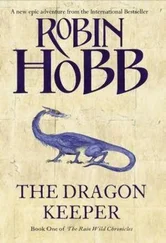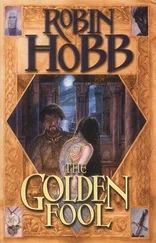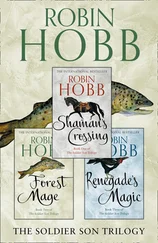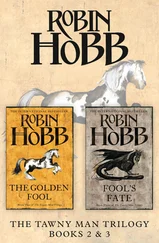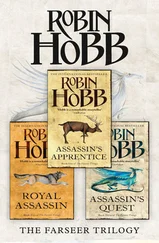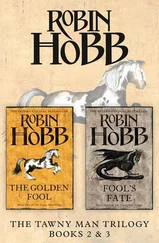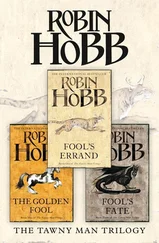Marcus had gone joyfully. Flavius had shaken his head over it then even as he did now. War and its glory were all Marcus had ever wanted. When they were boys, in the green of their youth, they had both dreamed of escaping their chores for the adventure of soldiering. They’d counted down the musterings until they reached an age when they, too, could stand with the other eligible men in the town square and await a chance to be chosen to serve. They’d both been seventeen years tall and of a like height at that first dilectus, and it had been Marcus who had contrived that they must find a way to stand four men apart. “For we shall be called forward four at a time, for the tribunes to have the pick of us. If we go up together, one will choose me and another you, and then we shall certainly be separated. So, see that you come up after me, for if I can at all, I shall whisper to the tribune that chooses me that although you may not have the muscle I show, there is no one like to you for an arrow well shot or a spear flung straight. I’ll see that so long as we march to war, we always march together. That I promise you.”
“And what of our marching home? Do you promise we shall always be together then?”
Marcus had stared at him, affronted. “Of course we shall! In triumph!”
Small matter to Marcus that, if Flavius had had his way after his first stint of soldiering, he might have stayed at home, well away from the gore and boredom of a soldier’s life. But of course, he had no choice; no son of a Roman citizen did. And so at that first muster he stood, knees slightly bent to blend in with three shorter youths, and watched Marcus being chosen. He saw his frantic whispering and pointing, and he saw the stony-faced tribune who waved an angry hand at him to silence him. But when the time came for the tribune to choose from the four men offered him, he had chosen Flavius. And thus the two boyhood friends had marched off together for their first foray into a soldier’s life.
Marcus thrived on a military life. As Marcus’ talent for strategy had blossomed, he had risen in rank. Although Marcus was his commander on the battlefield each year, when they returned home, they resumed being friends and neighbors. As the years had passed, and especially after the dragon had damn near taken his leg off, Flavius had answered the muster more reluctantly each year. He had begun to hope that the tribunes would see that the injury to his leg had made him an old man before his time. But every year when he presented himself for the dilectus, Marcus contrived that Flavius was chosen to serve in his legion. And at the end of each campaign, when they returned home together, always they slipped comfortably back into their old friendship.
Had Marcus ever wanted to be anything but a soldier? Even now, as Flavius looked up at him in his cage, he doubted it. When they were boys, after their chores, Marcus had always wanted to be fighting with staves or staging ambushes on the neighbor’s goats. Flavius had preferred the hunt to a battle, and on the evenings when he persuaded Marcus to follow him on his quests, his friend had been unstinting in his amazement and praise of Flavius’ skills. He excelled at stealth and marksmanship. Flavius well remembered the sweetness of the long evenings of late summer, when the two boys had lounged by a small fire, savoring the smell of plundered apples baking by the embers and a small game bird sizzling over the last of the flames. Flavius’ thoughts would wander to whether he might persuade his father to let him range farther in search of larger game, but for Marcus, the dream was always the same.
“I know my destiny,” he had confided to Flavius, more than once. “I’ve seen it in my dreams. I shall rise through the ranks, to be a praetor or a consul, just as my father did before me. And then I shall lead my troops forth into war.”
“To kill a thousand of the enemy?” Flavius would ask, grinning.
“A thousand? No! Five thousand, ten thousand will fall to my strategy. And I shall be summoned back to Rome and awarded a Triumph. I shall be paraded through the streets, with wagons full of my plunder, and my captives walking barefoot behind me. My army will follow me, of course, and you, Flavius, you I promise will be in the first rank. My wife and my grown sons will be honored with me. And I, I shall be stained as red as this apple, and my toga whiter than snow. At Jupiter’s temple, I will sacrifice six white bulls to him. All of Rome will line the streets to cheer me. This I know, Flavius. I’ve seen it.”
He’d smiled at his friend’s posturing. “Don’t forget the best part of it, Marcus. There will be a slave in the chariot with you, standing just back of your shoulder and leaning forward to whisper into your ear the words that remind you that every hero is mortal. And thus you will be kept humble.” He grinned. “Perhaps, instead of a slave, they will let me do that!”
“Mortal? The body perhaps is mortal, Flavius. But once a man has had a Triumph, once he is an imperator, then his legend is immortal and will be passed on through all the generations of soldiers that will ever spill blood on the earth.”
One of the stolen apples had popped on the fire, spitting out a tiny missile of pulp and then draining a sweet stream of hot juice into the embers. Flavius had speared it with the small stick he was using to tend their meal and drawn it back from the fire’s edge. He held it up gravely on its skewer. “Memento mori!” he had toasted it gravely, and then blown on it before scalding his mouth with an incautious bite of it.
* * * *
Regulus tried to decide if the evening was as chill as it seemed. The day had been hot enough to bake him. But now, as the sunlight that jabbed through his hazed vision turned the world to a bloody red, he felt chilled.
His eyeballs were too dried to see clearly, but he could still perceive that the light was fading. So the cooler evening was finally coming. Or death. Blindness would make the light fade, and blood loss could make a man cold. He well knew that. He’d lost count of the times when he’d lent his cloak to wrap a dying man. Flavius, he suddenly thought. He’d knelt by Flavius and tucked his cloak around him as he shivered. But Flavius hadn’t died, had he? Had he? No, not then. Not then, but now? Was Flavius alive now? Or had he left him dead on that last battlefield?
Men always complained of the cold when they were dying, if they had breath left to speak. The cold and the enveloping darkness troubled them, or they expressed regrets in a muttered word or a sigh as he knelt beside the fallen man. As if the cold or the dark were what a man should worry about when his entrails were spilled in the dust next to him, or half his body’s blood was congealing in a pool beneath him. Still, it was a small comfort to offer, the lending of a cloak for the usually brief time it took a man to bleed out from a battle wound. A small comfort he would have welcomed just now. The touch of one friendly hand, one word from a friend to send him on his way. But he was alone.
No one would come to wrap him in a cloak, or to take his hand, or even to speak his name. No one would crouch down beside him and say, “Regulus, you died well. You were a fine consul, a loyal centurion, and a good citizen. Rome will remember you. You died a hero’s death.” No. His parched tongue tried to wet his cracked lips. Another stupid reflex of the body. Tongue, lips, teeth. Silly, useless words now. None of them applied to him. As stupid as his mind, going on thinking, thinking, thinking while his body spiraled down into death.
Something landed on the top of his suspended cage. A bird, it would have to be a bird up here. Not a serpent, not a dragon. It was not heavy, he didn’t think, but it was enough to make the cage rock a tiny bit.
Читать дальше

